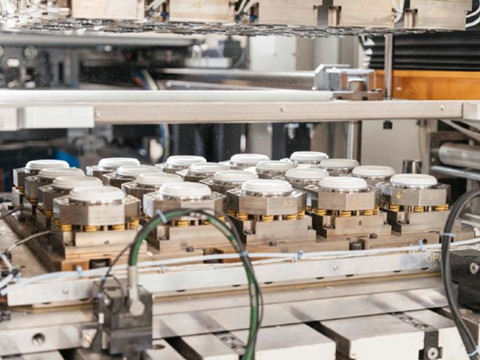
Egg tray producer Nippon Molding plans to expand its Dry Molded Fiber portfolio and encourage fibre-based packaging innovation on the Japanese market after completing Site Acceptance Testing for its PulPac Modula machine from TechTribe.
Despite claiming to be among the biggest recyclers in the world, Japan is believed to produce some of the highest rates of plastic packaging waste per capita, and not all of it is recycled. Furthermore, PulPac cites a McKinsey study suggesting that ocean litter is a major concern for Japanese consumers.
Several initiatives have been introduced in an effort to cut down on single-use plastic consumption among both businesses and consumers; these include the Act on Promotion of Resource Circulation for Plastics, which aspires to a cradle-to-gate approach from design to disposal.
Meanwhile, PulPac’s Dry Molded Fiber manufacturing process claims to be up to ten times faster than conventional fibre forming while utilizing significantly less water and energy. Reportedly, the dry mould process cuts the CO2 production footprint of traditional methods by up to 80%.
Now that its machinery has been approved, Nippon Molding plans to utilize PulPac’s technology and the Modula machine platform to expand its Dry Molded Fiber offerings. It intends to place ‘high-quality’ and ‘responsible’ packaging on the Japanese market and encourage innovation in the country’s fibre-based packaging sector.
In doing so, it aims to meet growing demand and contribute towards a global, industry-wide transition into circularity-minded, resource-efficient packaging solutions – aligning with its own intent to ‘use limited resources effectively’.
“We keep challenging ourselves for a better future and are thrilled to have finalized the SAT,” said Takehiro Ishihara, general manager of Nippon Molding. “In parallel, we are refining our food tray application for manufacturing, to swiftly bring these sustainable solutions to our customers and further contribute to a greener society.”
“We are delighted to see more and more partners successfully completing their SATs,” added Sanna Fager, chief commercial officer at PulPac. “We commend Nippon Molding for their unwavering commitment to sustainability and innovation, and we look forward to supporting their continued success as they help drive the global transition to resource-efficient, fibre-based packaging.”
The news comes after PulPac joined forces with Dart Container Corporation to install the first Dry Molded Fiber production line in North America. The partnership was expected to bolster the US-based manufacture of fibre-based packaging and provide customers with a broader range of locally-sourced options.
Optima has also partnered with PulPac and PA Consulting to develop bespoke machinery and produce coffee capsules, blister packaging, and other complex products made of Dry Molded Fiber. The partners have set their sights on meeting consumer demand, customers’ sustainability targets, and legislative requirements by helping brands utilize more intricate Dry Molded Fiber packaging at scale.
If you liked this story, you might also enjoy:
The ultimate guide to the Packaging and Packaging Waste Regulation in 2024
How are the top brands progressing on packaging sustainability?
Sustainable Innovation Report 2024: Current trends and future priorities
Everything you need to know about global plastic sustainability regulation














No comments yet